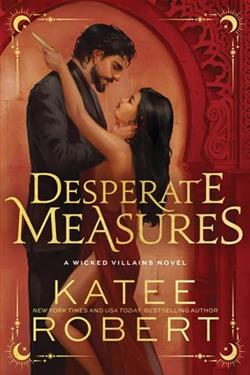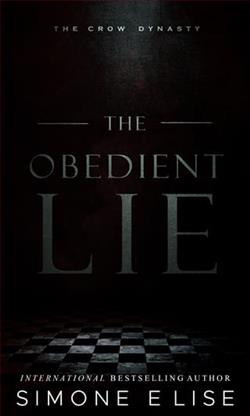Page 113 of A Resistance of Witches
Henry was dreaming about his mother. In the dream, Fabienne wore all white, her hair wrapped in a scarf. She was standing in their old house in Tremé, where Henry had grown up, but the house looked different than he remembered. Dust clung to the plants that lined the windowsill, growing wild out of chipped teacups, jelly jars, rusty coffee cans, all half-dead, yellow leaves clinging on for dear life. Spent candles melted onto the surfaces, leaving frozen pools and rivers of wax in shades of red, green, yellow, black, and white. The front door stood open, and leaves and refuse covered the floor, years of it, decaying in heaps, stinking of wet earth, as enormous swaths of black mold ate through the paint and stained the ceiling.
Henry’s mother stood in the midst of it all, hands on her hips in a gesture that was so familiar, it was synonymous with Fabienne herself. She looked like she was trying to tell him something, but though her lips were moving, no sound came out.
Mama, I can’t hear you, Henry said.Mama, hang on, back up—
A sound came out of his mother’s mouth like a needle scratching on a record, and then he heard her voice.
…the door. It sounded like she was in the middle of a scolding.
What? Mama, I don’t—
Don’t just stand there, Henry.There’s people waiting. Open the door.
People? Mama, we can’t have people over. The place is a mess.
The place doesn’t matter.They’re waiting. Open the door.
When he woke, Rebecca was watching him.
“Bad dream?”
Henry pushed himself up to sitting. His skin itched. “Strange dream.”
“Stranger than all this?”
He frowned. Already his mother’s words were slipping away from him. He was so sure they’d been important.
They were being held in an underground cave, with arched walls made of rough stone like they had been excised from the side of a mountain. Elaborate ironwork gates blocked them in from both sides, and from each gate hung an enormous iron padlock. A string of bare yellow bulbs hung overhead.
They had lost track of the days. It had happened so quickly, with no sun to mark the time. At first Henry had kept track by counting the visits from the woman who brought them food. She would come twice a day with bread or broth, and Henry could tell when one day had turned into another by the change in her clothes. But the last few visits she had brought only water, and he was almost certain they had missed a day, if not more.
Rebecca was pacing. “We need to get out of here.”
“No kidding.”
“No. I mean right now. Today.”
Henry looked up. “Why?”
Rebecca looked agitated. “They’ve stopped feeding us. They’rebringing water, yes, but no food. I don’t think they’re planning on keeping us around much longer. A day. Maybe two.”
They fell silent as the grim reality set in. The sound of water dripping somewhere deeper in the tunnel seemed to grow louder.
Henry had been looking for ghosts. He thought if he could make contact that they might be able to help, but they had been here for days, and no one had appeared. It seemed impossible that a place like this wouldn’t have one or two spirits lurking around. Maybe it had once been full of them, but they’d since finished their business and moved on. Maybe they didn’t like it underground. Maybe he’d lost the gift, his punishment for so many years spent running from it.
Open the door.That was what his mother had said to him, he remembered now. She’d said it simply, like a whole host of people were standing on the front porch, waiting to come in. And there was something else. Something about the house, or…
“The place doesn’t matter,” Henry said out loud.
Rebecca looked up. “What?”
“I don’t…I don’t know.” But even as he said the words, he felt something slip inside his mind, like tumblers in a lock, clicking into place.
The place doesn’t matter. They’re waiting. Open the door.
He closed his eyes.
As a child, Henry had always assumed that the spirits he met were tied to whatever place he was in at that moment—stuck there, like flies in amber. He had never imagined bringing a spirit to him from somewhere else—not until that night in the Bouchers’ barn, when he had called out to Lydia through the void. But even then, he had imagined his mind as a static place—a room full of doors for the dead to walk through.















